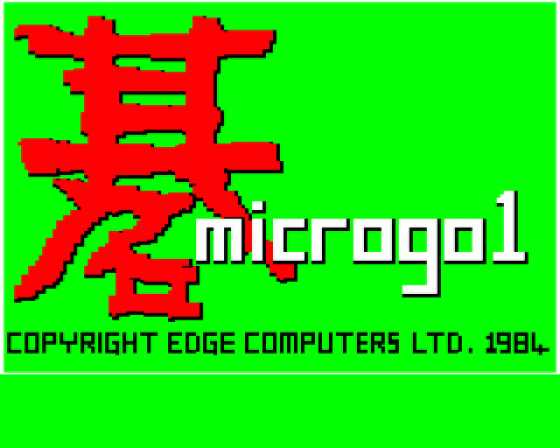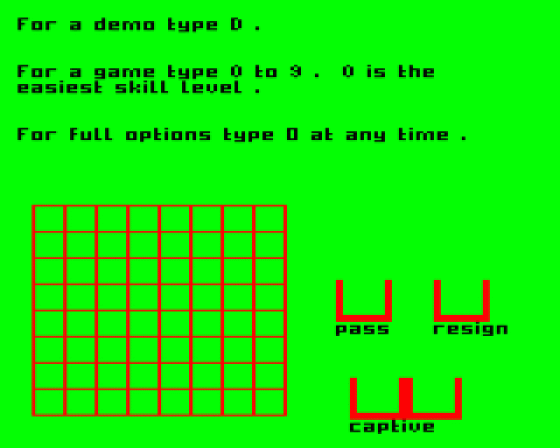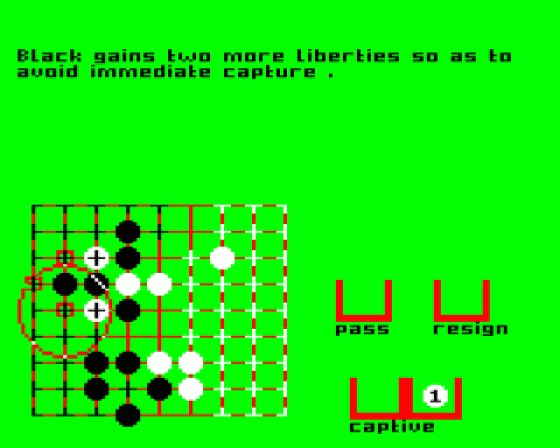
A&B Computing
 1st February 1985
1st February 1985
Categories: Review: Software
Publisher: Edge Computers
Machine: BBC/Electron
Published in A&B Computing 2.03
At last! The world's first commercially available Go program, Edge Computers tell us, so this could be a breakthrough unmatched since the first computerising of chess. As Go is much more difficult to program than chess, it is not surprising that Microgo pioneers the field on a quarter-size board.
The demo game (optional) is excellent, convering not only the rules but some of their trickier applications, and explanations are lucid. The graphics are lively, Microgo lobs his stone up in a graceful arc to land on the board with a sound admirably like the click of stone on wood, and a spreading ripple draws one's attention to the point.
A groan arises if you try to confirm a move on a point already occupied, and a curious warble accompanies the removal of prisoners. Sound is of course optional, but a beep for "atari" (the Japanese for "check") should have been incorporated, as the printed warning might be missed if you are poring over the board.

Messages are friendly in the main, but it is not pleasant to be told "Faster! Faster!" in a game many people consider more subtle than chess, and if left long, Microgo gets bored and wanders off to play the demo game.
Microgo certainly understands basic strategies such as cutting and connecting, and is so fiendish at killing groups a beginner might consider safe, that this takes it up to the level of 15 kyu (six months to a year of playing experience for most people) claimed for it by the publisher. We tried the program out against a three kyu player, a 10 kyu, and a 20 kyu. The three kyu predictably beat it even against the maximum five stone handicap allowed. The 20 kyu lost decisively from evens. Trick-play can pay off, however, and the wily 10 kyu lost by only two points against the maximum handicap.
Opening play is sometimes erratic, sidepoints being taken whereas grabbing the corners on such a small board is vital. Microgo once put itself into atari in order to give atari.
The real defect, though, is a tendency to pass too early, when the program presumably reckons it has a comfortable win. An advanced player - or one who is just plain cunning! - can, for example, risk building a "dead" line around the board, then take advantage of a couple of supercilious passes to home in and snuff out some major group. However, be warned! Microgo sometimes wakes up to the danger, kills your line, and wins decisively.
To be fair though, the program is obviously directed towards beginners with little or no experience. They will find it an excellent method of learning to play Go, and even pick up some of the subtleties of the game, before venturing out to join a Go club.
Scores
BBC/Electron Version| Sound | 90% |
| Graphics | 85% |
| Documentation | 100% |
| Value For Money | 90% |
| Overall | 90% |











